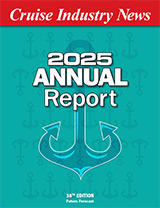The U.S. Office of Management and Budget has declined to act on a proposed rule change in the Passenger Vessel Services Act that would have drastically changed cruise ship operations in the United States. Some cruise officials had called the proposed rule “devastating.”
In November, U.S. Customs and Border Protection, backed by Hawaiian legislators and NCL, proposed a new rule that would require non-U.S.-flagged ships leaving a U.S. port with U.S. passengers to spend at least 48 hours at a “distant foreign port,” allow passengers to go ashore, and that the time at the foreign call be at least 50 percent of the total time at U.S. ports.
The rule change was aimed to protect U.S.-flagged ships operating in Hawaii, but could have had broader implications – such as to sailing in Alaska, Canada, Mexico and even the Caribbean, if broadly interpreted.
In an Aug. 13 letter to Homeland Security, Susan E. Dudley, the administrator at the Office of Information and Regulatory Affairs, wrote: “This proposal presents no market failure or compelling public need, omits a statement of the costs and benefits of the rulemaking and does not include a discussion and analysis of regulatory alternatives, significant distributive impacts, or uncertainties. For these reasons, we are returning the draft proposed rule for your reconsideration.”
The Passenger Vessel Services Act, enacted by U.S. Congress in 1886, restricts non-U.S.-flagged cruise ships from travel between two U.S. ports unless it also calls on a foreign port.



